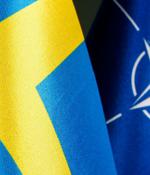Security News

Cybersecurity researchers have shed light on a Russian-speaking cyber espionage group called Nebulous Mantis that has deployed a remote access trojan called RomCom RAT since mid-2022. RomCom...

The Spanish National Police has arrested a hacker suspected of having breached national and international agencies (including the United Nation’s International Civil Aviation Organization and...

'Sweden has changed,' PM warns as trio of warships join defense efforts Sweden has committed to sending naval forces into the Baltic Sea following yet another suspected Russian attack on...

Resecurity, a global leader in cybersecurity solutions, unveiled its advanced Government Security Operations Center (GSOC) during NATO Edge 2024, the NATO Communications and Information Agency’s...

Ransomware criminals believed to have taken orders from intel services The relationship between infamous cybercrime outfit Evil Corp and the Russian state is thought to be extraordinarily close,...

Your profile can be used to present content that appears more relevant based on your possible interests, such as by adapting the order in which content is shown to you, so that it is even easier for you to find content that matches your interests. Content presented to you on this service can be based on your content personalisation profiles, which can reflect your activity on this or other services, possible interests and personal aspects.

NATO and the European Union, with international partners, formally condemned a long-term cyber espionage campaign against European countries conducted by the Russian threat group APT28. Germany said on Friday that the Russian threat group was behind an attack against the Executive Committee of the Social Democratic Party, compromising many email accounts using a Microsoft Outlook zero-day bug.

Ivanti has fixed a critical RCE vulnerability in Ivanti Standalone Sentry that has been reported by researchers with the NATO Cyber Security Centre. The vulnerability affects all supported version of Ivanti Standalone Sentry as well as older, unsupported ones.

Ivanti warned customers to immediately patch a critical severity Standalone Sentry vulnerability reported by NATO Cyber Security Centre researchers. Ivanti also fixed a second critical vulnerability in its Neurons for ITSM IT service management solution that enables remote threat actors with access to an account with low privileges to execute commands "In the context of web application's user."

Initial access brokers are increasingly targeting entities within NATO member states, indicating a persistent and geographically diverse cyberthreat landscape, according to Flare. Flare analyzed hundreds of IAB posts on the Russian-language hacking forums, and discovered recent activity in 21 out of the 31 NATO countries - confirming the extensive reach and consistent potential threat IABs pose to national security and economic stability.